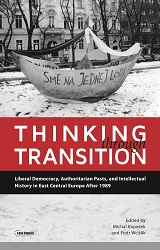
We kindly inform you that, as long as the subject affiliation of our 300.000+ articles is in progress, you might get unsufficient or no results on your third level or second level search. In this case, please broaden your search criteria.

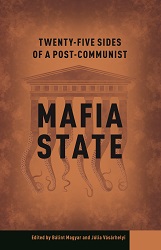
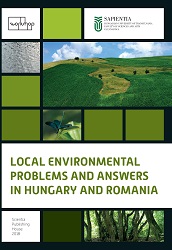
The present paper examines the role and possibilities of the local political actors in the decision-making processes of local governments and the way they influence local environment policy. The paper analyses a part of the results of an on-line questionnaire responded to by 516 local governments. The researchers’ hypotheses partly refer to the transformed local state model of the public administration, assuming the strengthening of the state influence. The other hypotheses of the paper refer to the local decision-making mechanism and their characteristic features, e.g. how pro-active the local environment policy is and what the difference is between the ideal and typical local decision-making mechanisms. Based on the research results, due to the strengthening of the local state model (i.e. the growing influence of the central government/the state), the role of the potential actors shows a decreasing tendency in the local environment policy. Local governments seem to be the main formers of the local environment policy, while the impact of non-governmental organizations and citizens is regarded as small. It is interpreted by local governments as a contradiction between the “ideal” vs “actual” local decision-making mechanism.
More...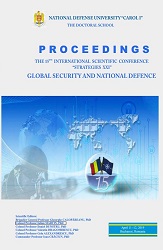
The contemporary operational environment is filled with hybrid threats manifested in open wars or in the grey zone conflicts. The challenges posed by an open hybrid conflict to the tactical units’ operations physiognomy are yet to be identified and addressed according to the lessons learned from the conflicts labeled as hybrid. While, to a certain extent, it is obvious what should be the tactical units’ reaction against a hybrid threat in a host nation territory, it is still not clear what options the Land Forces have in the case of a homeland intervention to counter such a threat posed by a covert actor not crossing the threshold that would activate a state of emergency. Another important question mark is referring to the real possibilities of the tactical units to be proactive in order to smoothly prepare the ground for a facile armed intervention against a hybrid threat within its national borders.
More...
War has always been a contest between different actors, but the character of conflicts is changing over time. Technological progress, continuous changes in the geopolitical landscape as well as new operating concepts will permanently influence and change the international security environment. Nowadays, the most powerful actors in the international arena are concerned with identifying ways to exercise their supremacy without having to resort to force, destruction, etc. These methods are based on the use of tactics of deception, psychological actions, cyber attacks, economic actions, actions like SIGINT, HUMINT, GEOINT etc. All these actions can materialize in a non-kinetic operation that does not involve the physical strength of weapons, but determines where and when the opponent will act, or even more, can block him from using his weapons, or even turn them against him.
More...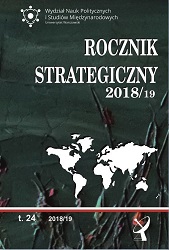
According to the Minister of Foreign Affairs, Heiko Maas, the main challenges forthe international order Germany not only knows but also has become accustomed to,are Donald Trump’s egoistic policy, Russia’s attacks on international law and statesovereignty, and the expansion of China.Germany is a country that wants to maintain the status quo. In the last decades,thanks to US protection, Germany only spent a small portion of its GDP on defenceand could focus on economic development instead. However, the ongoing changesin the global balance of power undermine the possibility of keeping it that way.The Chinese-American competition for primacy in the contemporary world hasserious consequences for Germany as well. Germany’s plan to build economic andpolitical relations while presenting the country as a civilian superpower is becomingincreasingly challenging for the authors of German foreign policy.
More...
China’s spectacular, unprecedented economic growth in the last four decadeshas brought about a spectre of a new global order. An order in which the currenthegemonic power, the US, is not the lone dominant factor and the power centreanymore. Is the world moving towards a new cold war, or is it already in the‚Thucydides trap’, with a real war on the horizon? The author argues, based on ampleprevious research, that nothing is certain yet. However, starting from the events of2018 and with the ‚Donald Trump factor’ at play, the situation has become verydynamic, as the US has finally recognized that it has a real competitor and contender,that is constantly growing and rising China. Power politics is back on the globalstage, focusing especially on emerging China, which overshadowed Russia, India,Europe (the EU), and all the other factors. We have a new era and a new dynamicswith two superpowers instead of one, and probably a new bipolar system, maybestable, but also not unlikely to cause a limited war. That is why, in the near future, weshould, like it or not, focus our attention on the current state of US-China relations.
More...
The current frictions in the Middle East are a “microcosm” of power politics, closeto the vision of Thomas Hobbes and his bellum omnium contra omnes. This visionreflects very well the specifics of the Middle East, but also a security perception ofthe Islamic Republic of Iran, whose decision-makers invariably believe that almostthe entire region, and even a large part of the world, conspire against their state.From the Iranian perspective, Tehran is involved in a war of all against one – theIslamic Republic.The aim of this paper is to show how Iran approaches the contemporary internationalsystem and how it is trying to pursue its interests in a world of growing competition,emerging blocks and ongoing destabilization of the Middle East, where tensionshave been clearly increasing. This paper also tries to determine how consciously Iranenters this geopolitical game and to what degree it is forced to do so.
More...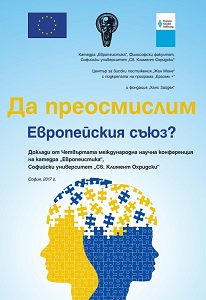
This paper addresses the area of political methodology and presents an approach on polity modelling. Polity modelling is analyzed from both historical and paradigmatic perspective by emphasizing the differences between classic (empirical) approaches and complexity-based approaches. The contribution of the paper consists in the modelling method: it combines democracy modelling with political culture modelling into a unified simulation framework. The modelling approach is focused on the Eastern European polities which have combined after the fall of the iron curtain in 1989 democracy-building with state-building processes. The paper presents a class of simulation models which explain operation of a polity as a complex adaptive system of interdependences between processes of democratization and political culture processes. The paper presents preliminary research results which combine agent-based system with complex adaptive system modelling.
More...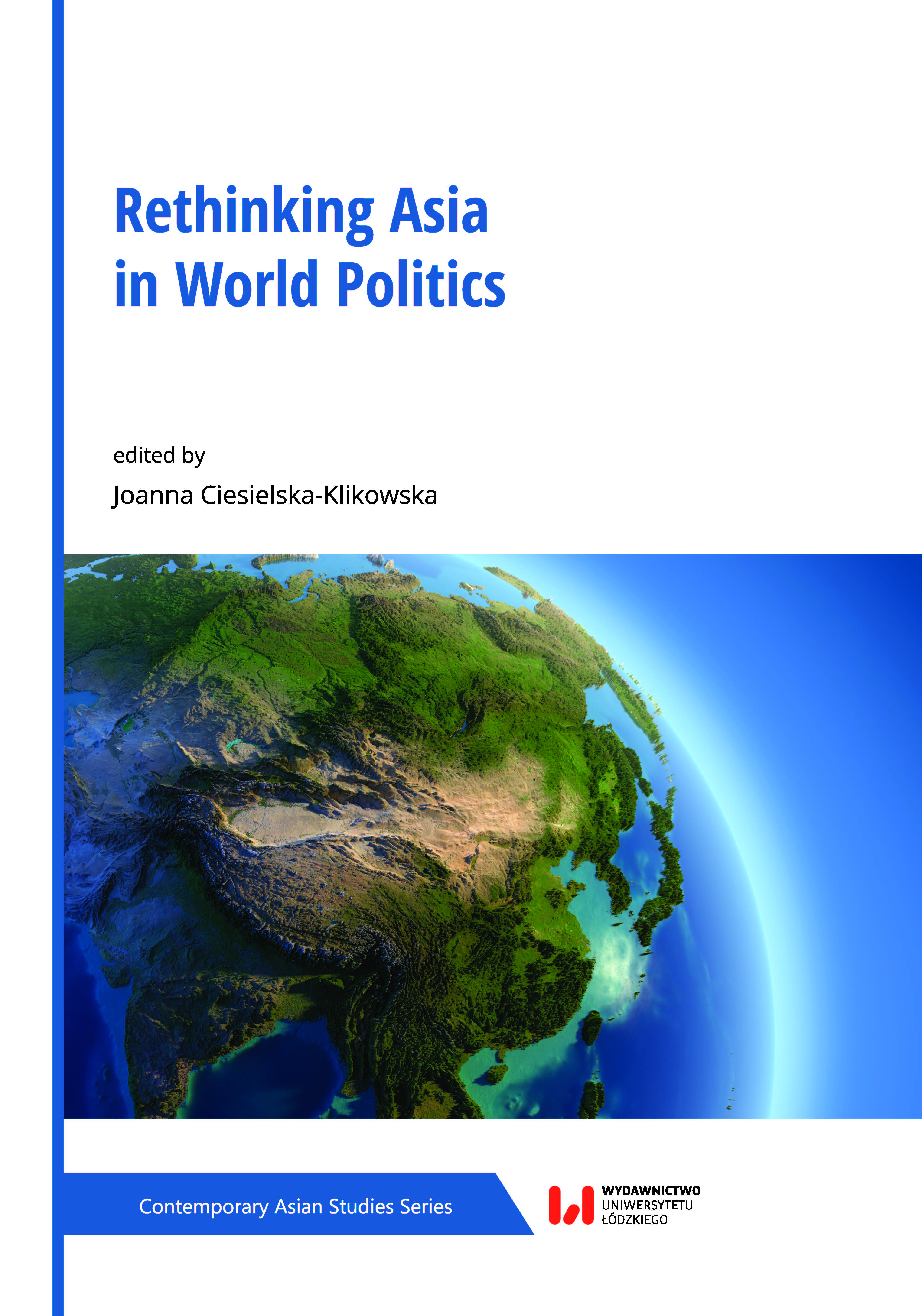

The agriculture remains a strategic sector of the economy, despite the widespread decline in its share in GDP production and employment. Its development is observed as a key factor in maintaining food security, as well as reducing poverty. The GMS’s agriculture is characterized by lagging growth rates in comparison with other sectors of the national economy. However, the GMS’s agriculture has shown positive changes. First of all, countries in the region are following a path of intensification, so the yield has increased steadily, although its strong dependence on variable weather conditions is major risk. Much of the agricultural land in the GMS is prone to floods, droughts or both. At the same time, despite the growth in labor productivity, its increase was not significant. The structure of agricultural production has begun to change. Traditionally monoculture production, specializing in rice cultivation, is gradually diversifying into secondary cash crop production, which is helping to increase cash production and agricultural exports. Agriculture in the GMS has been shifting from traditional subsistence to modern commercial farming. Peasant farms are increasingly oriented to the regional and world markets. They begin to produce products with comparative advantages, participating in the regional division of labor. The construction of vertically integrated enterprises and value chains within the framework of the GMS is also taking place. The positive effect of integration processes is the convergence of prices on the regional agricultural market and direct impact on global consumers. This article examines the features and achievements of agriculture, as well as highlights the challenges and problems.
More...
Although anti-Japanese sentiments in Southeast Asia initially remained strong after the Second World War, since the 1970s, Tokyo has managed to establish mutually beneficial cooperation with many Association of Southeast Asian Nations (ASEAN) countries. Cordial relations between Japan and Southeast Asian states contrasted with periodic reemergence of history issues between Japan and China or South Korea. This article examines the causes of this difference. It analyzes the international and domestic factors behind rapprochement between Japan and such states as Singapore, Malaysia, Indonesia, or Vietnam. It is argued that reconciliation with ASEAN countries was a part of Japan’s foreign policy strategy. Initially, it was aimed at promoting mutually beneficial trade through the Fukuda Doctrine, but over time, it started serving as one of the ways of containing and counterbalancing China’s rise in the region.
More...
This paper aims to use game theory to analyze the decision-making process associated with Japanese prime ministers’ visits to the Yasukuni shrine. The central thesis of the research is that it is possible to construct a model that enables the analysis of past visits to the shrine and assess the probability of such visits in the future. The presented research is a case study based on Jun’ichirō Koizumi’s visits during his term as Prime Minister of Japan. The model used for the analysis is based on the ‘chicken dilemma’ and is an example of a non-cooperative and repeated game. Relying on the model also allows us to juxtapose foreign pressures with those exerted by domestic interest groups, as preliminary findings suggest that using game theory to analyze visits to Yasukuni provides a better understanding of the rationality underlying the decisions to visit the shrine. Overall, the research presented here is preliminary and should be continued to deepen the analysis and develop a more accurate model.
More...
Koenkai 後援会 individual support group of Japanese politicians has become phenomenon that has no equivalent in any Western democratic country. It emerged on political scene long before introduction of universal suffrage, have spread in the post-war period of rapid democratization due to electoral campaign constraints, and survived until today despite of major evolutions of political environment. The aim of this paper is to show the historical trajectory of individual support groups development and attempt to answer the question if Koenkai’s funds distribution function-claimed in previous research remains valid. To prove the above I have examined previous research, utilized data of public opinion pools executed by Akarui Suishin Kyokai (Clean Election League) and financial reports submitted by support groups to electoral commissions in each of 47 prefectures and Ministry of Internal Affairs and Communications.
More...
Globally, maternal health matters and birthing ideologies and practices still generate much controversy. On the one hand, those who are promoting the medicalization of childbirth argue that the mortality and morbidity risks justify the imposition of biotechnological standards and practices. On the other hand, activists for demedicalization of birth are denouncing gynecological and obstetric violence, and pointing the pathologies induced by overuse of technologies. These movements, which are part of the current’s feminist calls, advocate a women’s reappropriation over their own bodies. The paper, based on long term and more recent ethnographical investigations aims to explore these political, cultural and social controversies by examining the recent initiatives in reproductive health domain carried by Japanese cooperation in South-East Asia. Since the 2000s, JICA (Japanese agency for international cooperation), as part of its infrastructure development, institutional strengthening and training programs, has indeed carried out numerous initiatives. One aims at improving the quality of maternal health care with two main objectives: the reduction of cesarean section rates and the humanization of birth.
More...
The recent military coup d’état in Myanmar has triggered widespread indignation and concern in the international community. The Tatmadaw have deposed a freely elected government led by the National League for Democracy, interrupting a decade-long process of democratization and repressing the ensuing civil protests with violence. Liberal democracies worldwide issued joint statements of condemnation as well as sanctions targeting the economic interests of the Burmese military. Among them, Japan has been a notable exception in taking significant measures against armed violence. Despite being a democracy pledging to pursue a diplomacy based on freedom, the rule of law and basic human rights, Japan tends to assume passive stances towards violence perpetrated abroad. Drawing from ontological security theory, the article tries to explain this attitude by taking into account Japan’s religious ethos. It is shown that the normative framework underlying Japan’s religious traditions is in stark contrast with the Western, individualistic principles on which humanitarian interventionism is based.
More...
This paper provides an overview of diplomatic missions between Central Europe and Southeast Asia and draws a picture of the political, economic, and cultural interactions between the countries of the two regions on vertical and horizontal levels. Desktop research is combined with selected theoretical views on diplomatic representation and international cooperation. A particular attention is paid to the interaction of the Visegrad Group (V4) countries with the countries of the Association of Southeast Asian Nations (ASEAN). Descriptive empirical views are interpreted in a growing “Indo-Pacific” context. The potential of the V4-ASEAN cooperation format is recognized but not yet fulfilled, which is expected to change with implementation of the EU’s Indo-Pacific Strategy.
More...
This article examines the University of Łódź’s educational cooperation before the outbreak of the COVID-19 pandemic. By analyzing educational and research interactions within the broader framework of Poland-China bilateral relations, both from historical and contemporary perspectives, the author argues that the intensity of contacts between University of Łódź and Chinese counterparts has often been dependent upon fluctuations in the political relations between the two countries and that despite initial enthusiasm the cooperation is now heading on more realistic tracks.
More...

At the beginning of the 21st Century, South-East Asia is gradually becoming one of the major hubs for international tensions and conflict on a global scale. With surge of People Republic of China capabilities connected with Soft and Hard Power, and re-igniting interest of remaining global players, this region is witnessing adaptation of new strategies and tools not only for war, but also for political and economic expansion. The main aim of this paper is to examine development of tools and strategies associated with sea power, which were developed to manage and exploit during standoff and potential conflict in the region. New quality of international environment is introducing change and evolution to the classical concept associated with classical understanding of sea power – how it is produced, measured, and exploited in contemporary situation. Main hypothesis of this paper will state, that with surge in cost and sophistication of sea power platforms, the primary users are devising new avenues to project their influence in disputed areas of South-East Asia. However, its final usefulness still needs to be tested in real-space entanglements. The paper will be subdivided on four separate parts. First will be devoted to original concepts of Sea Power, according to its founders, such as Alfred Thayer Mahan, Julian Corbett and John Fisher, whose created foundations of what is contemporary known as a Sea Power. Second will embrace the specifics of South-East Asia as a particular region for deployment of Sea Power. It will investigate its political, economic, social, and cultural landscapes ant their ties to Sea Power. Third will investigate the potential change in the nature, strategies and tools associated with Sea Power. And fourth part will encompass possible scenarios for Sea Power implementation in the South-East Asia conflict zone.
More...